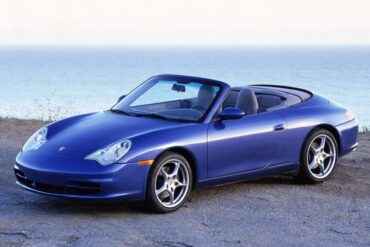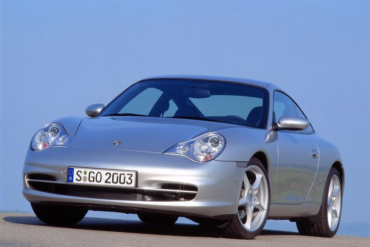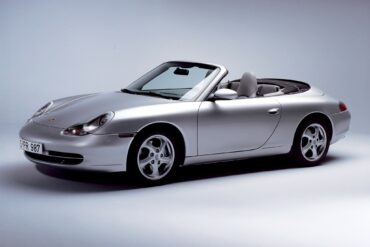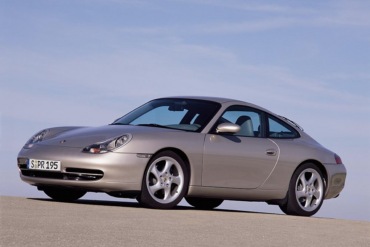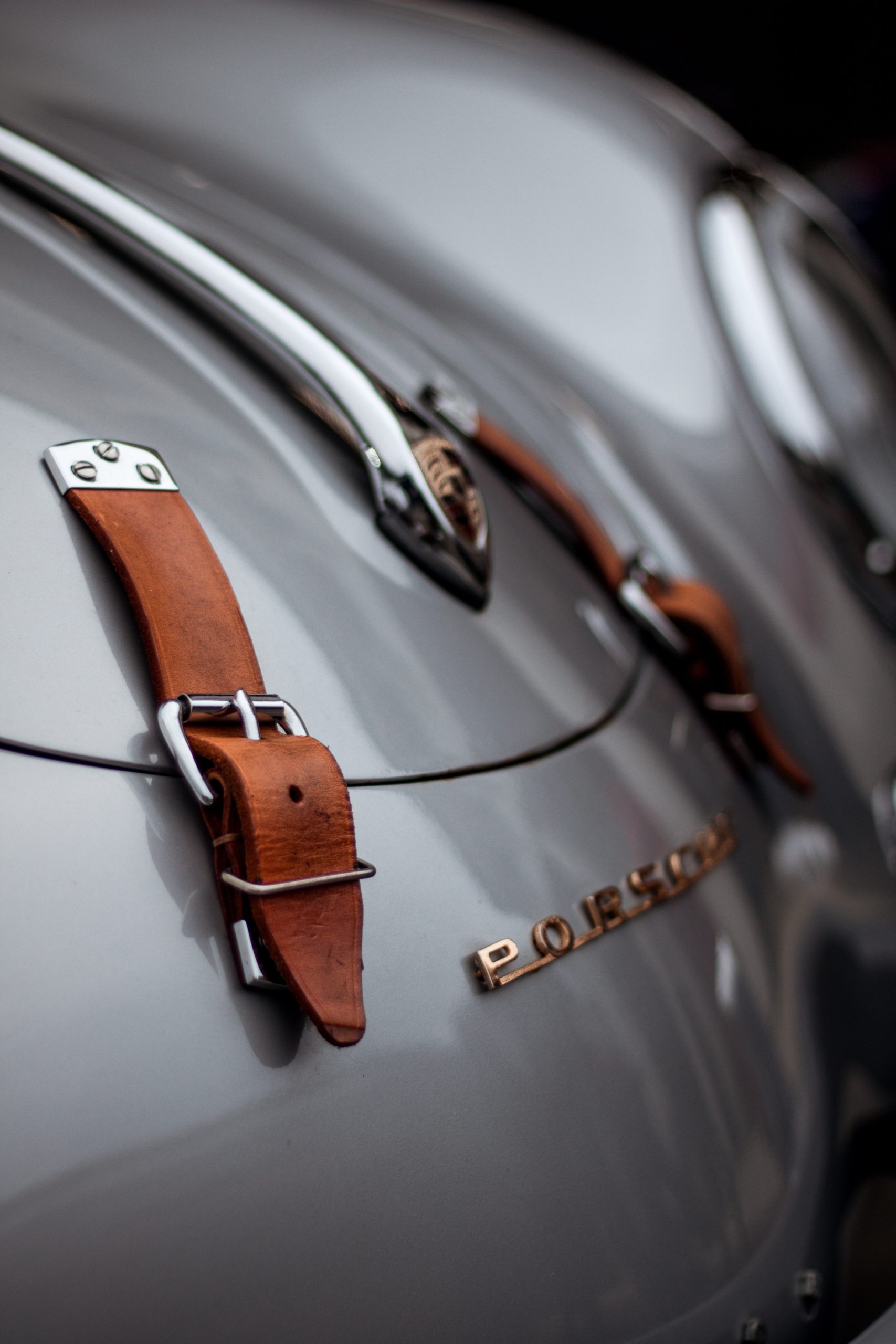The 996 was initially available in a coupé or a cabriolet (Convertible) bodystyle with rear-wheel drive, and later with four-wheel drive, utilising a 3.4 litre flat-6 engine generating a maximum power output of 221 kW (300 PS; 296 hp).[7] The 996 had the same front end as the entry-level Boxster. After requests from the Carrera owners about their premium cars looking like a "lower priced car that looked just like theirs did", Porsche redesigned the headlamps of the Carrera in 2002. With the cabriolet, buyers have a choice between this version and the hotter Carrera 4S cabriolet.
In 2002, all of the standard models received a minor makeover in 2002 which included Turbo-style headlights, a freshly designed front clip and an increase in engine capacity to 3.6L along with a subsequent 20HP boost. The bodies were more rigid which further improved handling and safety and the lower, stiffer X74 suspension became available as a factory modification. From the outside, it was hard to notice the difference between the 1998 version and the facelifted model. The main difference was on the headlights. Including the Mk 1 cars, the 996 Carrera Coupe sold 46,317 units.
The flat six in the Carrera 996 was a newly-developed flat-six engine that offered 300 hp. It was mated as standard with a six-speed manual. A 5-speed automatic (Tiptronic) with manual override to shift gears was on the options list. As always, the Carrera 2 was rear-wheel-drive. Designed as a grand tourer, the Porsche Carrera Cabriolet was the base version for the open-top 911 range in 1998. The retractable roof was able to be stowed away in 20 seconds at speeds of up to 50 kph (31 mph), like the rest of the 911 convertible range. With the roof up, the car was tested in the wind tunnel at speeds of up to 338 kph (210 mph).
The 996 series was a monumental update to the 911 story. The Type 996 introduced water-cooled engines and it also ushered in a new body design. The roof line with a windscreen which is around five degrees flatter gives the side view a more fluid look. Gone was the "classic" 911 design, the entire main body now much sleeker. The flat six in the Carrera 996 was a newly-developed flat-six engine that offered 300 hp. It was mated as standard with a six-speed manual. A 5-speed automatic (Tiptronic) with manual override to shift gears was on the options list. As always, the Carrera 2 was rear-wheel-drive.


